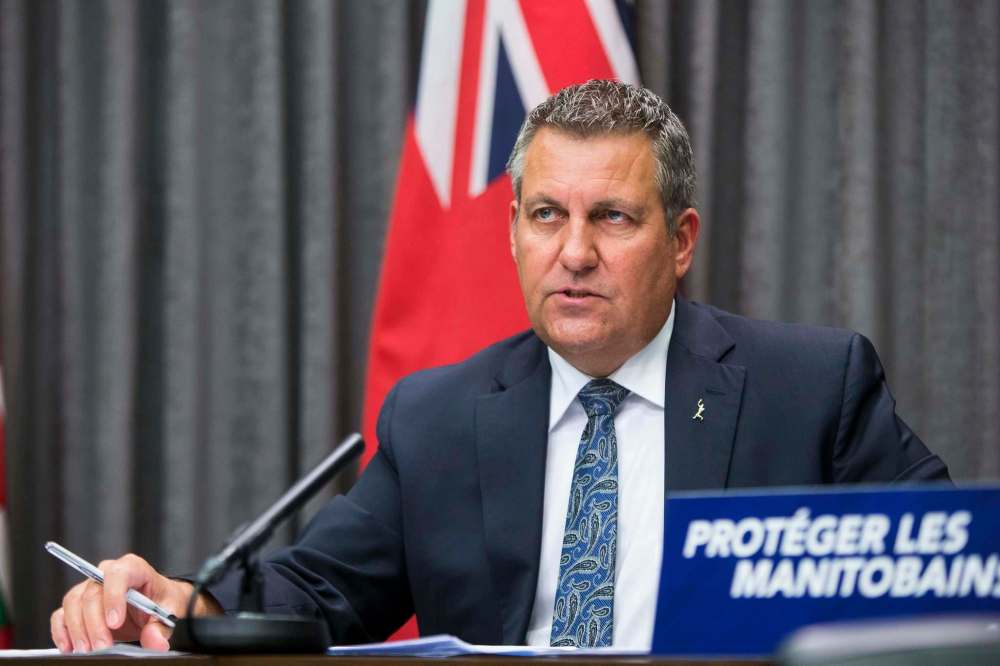Now is not the time for Bill 64
Advertisement
Read this article for free:
or
Already have an account? Log in here »
To continue reading, please subscribe:
Monthly Digital Subscription
$1 per week for 24 weeks*
- Enjoy unlimited reading on winnipegfreepress.com
- Read the E-Edition, our digital replica newspaper
- Access News Break, our award-winning app
- Play interactive puzzles
*Billed as $4 plus GST every four weeks. Offer only available to new and qualified returning subscribers. Cancel any time.
Read unlimited articles for free today:
or
Already have an account? Log in here »
Hey there, time traveller!
This article was published 01/06/2021 (1372 days ago), so information in it may no longer be current.
When floods hit Manitoba, we know the disaster isn’t over the minute the flood waters recede. The danger is over, but the devastation remains. Only when the waters recede do we realize the extent of the damage, the cost, and the effort and toil it will take to recover and rebuild.
And so it will be with this pandemic.
Health-care staff will need to rest and recover from the stress and strain of all they’ve been through. They will need to catch up on the surgeries and procedures that have been postponed. Businesses will need to reopen, build back and recover what they’ve lost. It will take time.

Our education system, too, will need to recover. Schools have been open, in one form or another, throughout this pandemic. Teachers have taught the curriculum and they’ve taught sanitizing, social distancing and masking. They’re now teaching about vaccinations. They’ve pivoted from remote to in-person learning and back again, some of them numerous times.
Principals have spent countless weekends and evenings doing contact tracing and communicating public-health information. They’ve had to tell families their kids couldn’t come to school. And as a consequence, they’ve had to tell parents they couldn’t go to work.
Students have been jolted out of familiar routines and have lost much of what they love so much about school: friends, extracurricular activities, field trips, hands-on experiences and more. The loss is especially severe for our youngest students and for our most vulnerable students. For those of us working in education, the floodwaters have yet to recede.
The full damage of this pandemic is yet to be revealed. What has it done to student learning, to mental and physical health, to friendships and future aspirations? What’s happened for the thousands of home-schooled children this year?
The answer is simply that we don’t yet know the full extent of the loss.
Schools need a period of recovery.
The Manitoba government has pledged $160 million to assist schools with recovery plans for the next school year, but has only announced detailed plans for roughly $60 million of that amount. Can we enrich our schools with extra staff to help our youngest and most vulnerable students recover some of what they’ve lost? Will we return to normal in September, or will we be in code red or orange or yellow?
And can we have a year of stability? In the midst of this pandemic, the government tabled Bill 64 — the Education Modernization Act and its BEST (Better Education Starts Today) plan. It is an ambitious, even an audacious endeavour that abolishes school divisions and centralizes authority in the minister of education’s office for 700 public schools, almost 200,000 students and nearly 30,000 staff.
It will have far-reaching consequences, some intended and some not. And it will most assuredly destabilize education at a time when stability and normalcy are what is most needed.
Everyone in schools, and everyone working to support schools in Manitoba, should be focused on the here and now, on doing their best to close out a difficult and challenging school year, on supporting the vaccine effort, on reopening safely in the fall and on helping our students get back to experiencing the joy of learning and healthy social interaction.
Before we shake up our schools, let’s enjoy some concerts, cheer for some teams and celebrate our grads. Let’s teach without masks and ride school buses without fear. Let’s have kids sit with their friends at lunch and see one another and their teachers and laugh and smile.
Most of the government’s declared objectives can be achieved without the dramatic restructuring and bureaucratic centralization of Bill 64. The provincial government has already made substantial moves to shift education funding from property taxes to general revenues. There have already been substantial reductions in administrative costs, which in Winnipeg are already lower than Edmonton and Calgary.
There is nothing preventing the government from working with schools to narrow achievement gaps and to strengthen parental voice.
The provincial government has faced criticism in its pandemic response for doing “too little, too late.” Bill 64 may prove to be too much, too soon.
Bill 64 can wait, and it should. Now is simply not the time.
Brian O’Leary is superintendent of the Seven Oaks School Division.





